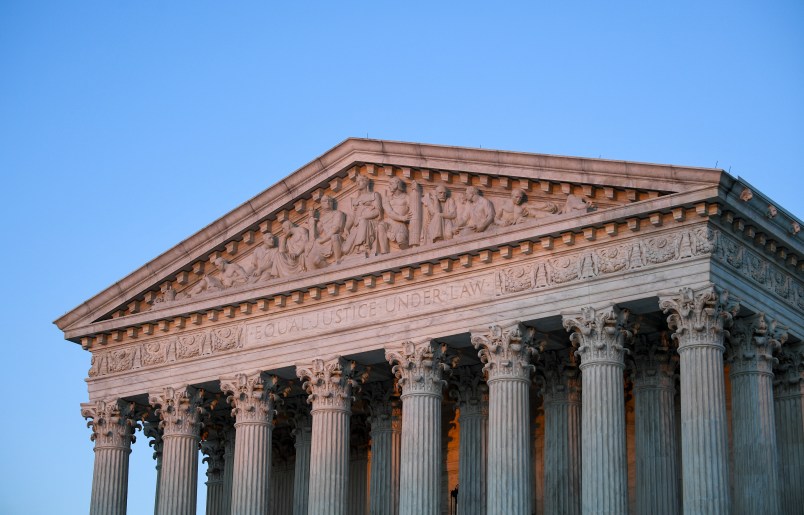A Republican Party request that the Supreme Court block an agreement Rhode Island reached in court to expand absentee voting for the pandemic was a bridge too far for the conservative Court, which has otherwise sided against efforts to making voting easier in the emergency disputes that have reached it during the pandemic.
The court said Thursday that it would not block Rhode Island’s consent decree, as the RNC and state GOP was requesting ahead of its upcoming primary.
Rhode Island had recently settled a lawsuit brought against it by the voting rights group Common Cause by agreeing to waive to the state’s witness and notary requirements for absentee voting.
Justice Clarence Thomas, Justice Samual Alito, and Justice Neil Gorsuch indicated in Thursday’s order they would have blocked the consent decree.
In several other instances, the Supreme Court has favored the more restrictive voting regime when these sort of disputes were brought to its doorstep.
But unlike cases out of Alabama and Texas, where state officials are continuing to fight the efforts to make voting easier, Rhode Island’s state officials supported the consent decree and where not seeking to put it on hold.
That distinction appears to have led at least five members of the court (not every dissent must be noted publicly) to okay the more lax absentee voting procedure that Rhode Island agreed to.
“Unlike Merrill v. People First of Alabama, 591 U. S. ___ (2020), and other similar cases where a State defends its own law, here the state election officials support the challenged decree, and no state official has expressed opposition,” the court said. “Under these circumstances, the applicants lack a cognizable interest in the State’s ability to ‘enforce its duly enacted’ laws.”
The three public conservative dissenters did not elaborate on what they disagreed with about the court’s move. The majority’s rationale leaves the door wide open for states to continue to seek the Supreme Court intervention in court cases where lower courts rule in favor of expanding voting access during the pandemic.
Read the order below:



